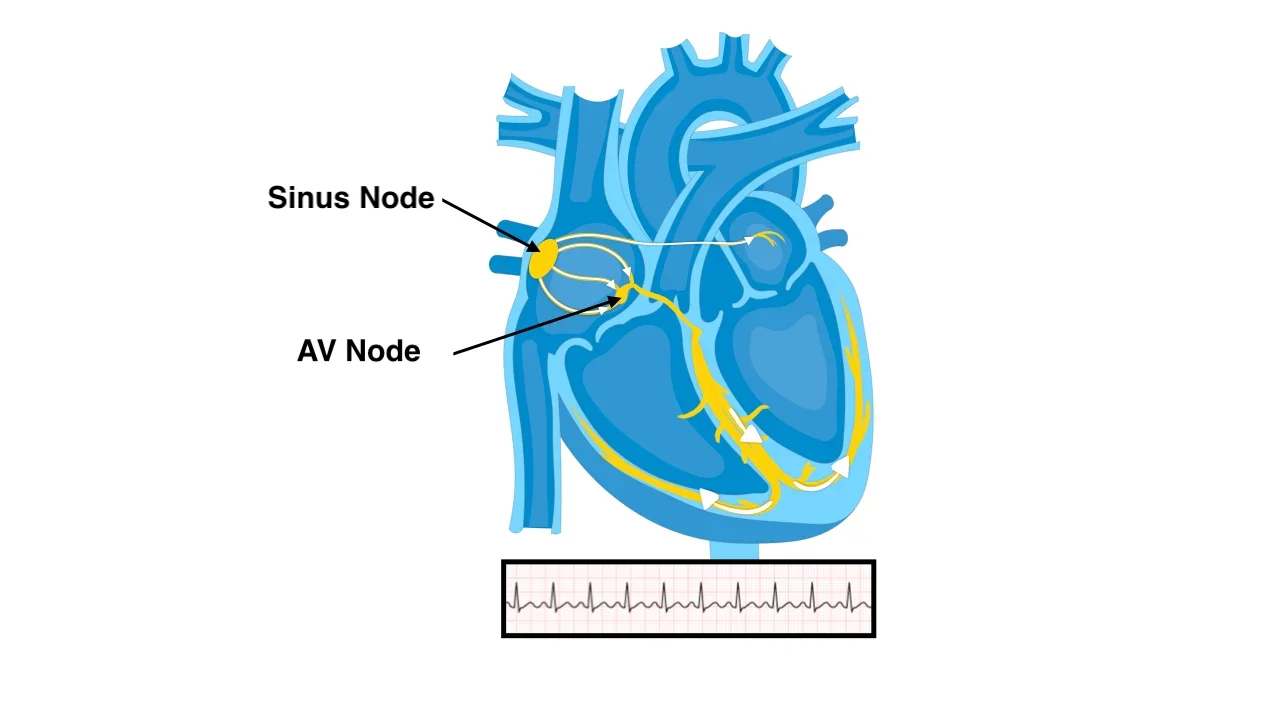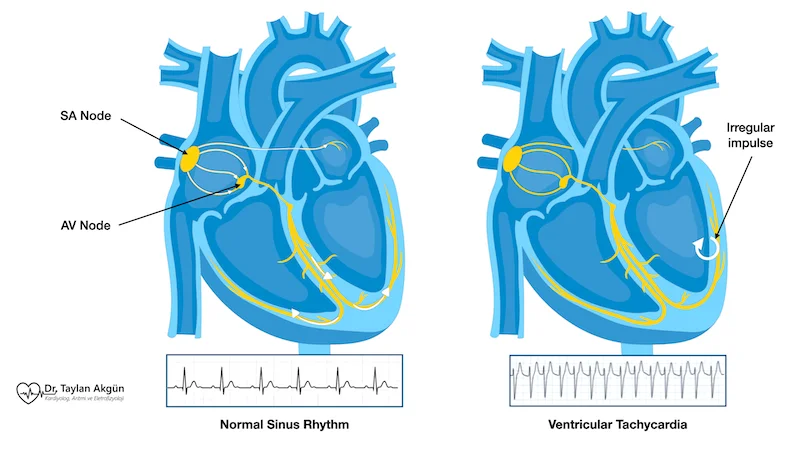Sinus tachycardia is a condition in which the heart beats faster than normal while maintaining a normal and organized rhythm. The electrical signal originates from the heart’s natural pacemaker—the sinus node—and follows the usual pathways. In other words, the rhythm itself is normal; only the speed is increased.
This distinction is crucial. Sinus tachycardia is often a normal response to physical or emotional stress, but in some situations it may signal an underlying medical issue that needs attention.
How Sinus Tachycardia Works
The sinus node continuously adjusts heart rate based on the body’s needs. During exercise, stress, fever, or excitement, the heart rate increases to deliver more oxygen-rich blood to tissues. This adaptive response is healthy and expected.
Sinus tachycardia becomes clinically relevant when the heart rate is persistently elevated at rest or occurs without an obvious trigger. In these cases, the fast rate reflects an underlying driver rather than a normal physiologic response.
What Sinus Tachycardia Feels Like
Some people are unaware of sinus tachycardia, while others feel it clearly—especially at rest or at night.
Common sensations include:
- A fast or pounding heartbeat
- Palpitations with a steady rhythm
- Shortness of breath with minimal exertion
- Fatigue
- Anxiety or restlessness
Because the rhythm is regular and organized, symptoms are often less dramatic than in sudden-onset arrhythmias, but they can still be distressing.
Common Causes of Sinus Tachycardia
Sinus tachycardia is usually secondary to another condition rather than a primary heart rhythm disorder.
Frequent causes include fever, dehydration, pain, anxiety, anemia, infection, hyperthyroidism, and physical deconditioning. Stimulants such as caffeine, nicotine, and certain medications can also increase heart rate.
In these situations, treating the underlying cause typically restores a normal heart rate.
Inappropriate Sinus Tachycardia
In a small group of patients, sinus tachycardia occurs without an identifiable cause and persists even at rest. This condition is known as Inappropriate Sinus Tachycardia.
Although the rhythm is technically normal, the abnormally high rate can cause significant symptoms, including palpitations, fatigue, dizziness, and reduced exercise tolerance. Management focuses on symptom control and improving quality of life rather than eliminating the sinus rhythm itself.
Is Sinus Tachycardia Dangerous?
In most cases, sinus tachycardia is not dangerous. It does not increase the risk of sudden cardiac death and does not usually damage the heart.
Concern arises when sinus tachycardia is persistent, unexplained, or associated with symptoms such as fainting, chest pain, or signs of underlying heart disease. In these cases, further evaluation is appropriate.
How Sinus Tachycardia Is Diagnosed
Diagnosis is made with an electrocardiogram showing a normal sinus rhythm with a faster-than-expected rate. Because sinus tachycardia may fluctuate, heart rhythm monitoring is sometimes used to assess patterns over time.
Evaluation focuses on identifying reversible causes through clinical assessment, blood tests, and, when indicated, cardiac imaging. The goal is to understand why the heart rate is elevated rather than simply documenting the rate.
Treatment Options for Sinus Tachycardia
Treatment depends entirely on the underlying cause.
When sinus tachycardia is a normal response to stress, illness, or exertion, reassurance is often sufficient. Addressing triggers such as dehydration, infection, anemia, or thyroid dysfunction usually resolves the problem.
Lifestyle measures—including adequate hydration, gradual conditioning with exercise, stress management, and limiting stimulants—play an important role.
In selected patients with persistent symptoms, medications that slow the heart rate may be considered. Treatment is individualized and aimed at symptom relief rather than suppressing normal heart rhythm.
Living With Sinus Tachycardia
For most people, sinus tachycardia is temporary and benign. Understanding that the rhythm itself is normal helps reduce anxiety, which can otherwise worsen symptoms.
When sinus tachycardia is persistent or unexplained, appropriate evaluation and follow-up ensure that underlying causes are addressed and symptoms are managed effectively.
In Summary
Sinus tachycardia is a fast heart rate arising from the heart’s natural pacemaker. It is often a normal response to physical or emotional stress, but when persistent or unexplained, it may reflect an underlying medical condition. Identifying and treating the cause is the cornerstone of management, and most people can be reassured once serious causes are excluded.
Reference: Sinus Tachycardia







